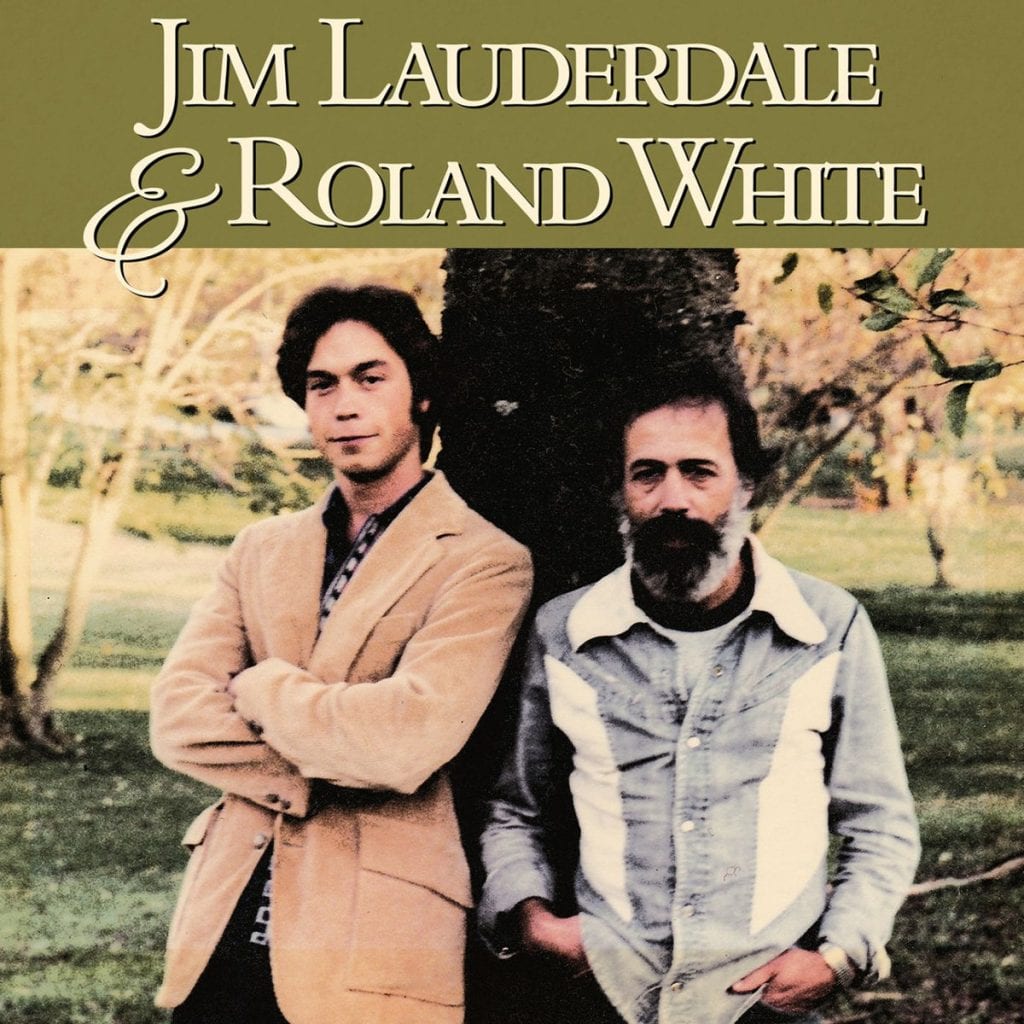Jim Lauderdale’s Basement Tapes

Some albums are worth the wait. Back in 1979, Jim Lauderdale had come to Nashville, just out of college in North Carolina, to try to get something started in the music business and to make friends with George Jones and Roland White. The first never happened — though Lauderdale wrote his now-iconic tune “The King of Broken Hearts” in tribute to Jones — but he did meet White, who told the young singer and songwriter how much he liked his music and that they should make an album together.
The pair recorded the album in the basement of Earl and Louise Scruggs’ house, and they were joined by Gene Wooten on dobro, Johnny Warren on fiddle, Stan Brown on banjo, Terry Smith on bass, and Marty Stuart on lead guitar. When they finished making the album, though, they couldn’t find a label that was willing to release it, so Lauderdale put it away.
In the mid-’90s, when Lauderdale’s star was on the rise, he and White thought it might be a good time to release the album, but they realized that they didn’t have the masters and that over the years they’d been lost. Recently, White’s wife found them at the bottom of a box.
What would have been Lauderdale’s first album, the aptly titled Jim Lauderdale & Roland White, reveals Lauderdale’s easygoing delivery and his way with a song. The album opens with Lauderdale’s bluegrass scamper “Forgive and Forget”; White’s skittering mandolin kicks off the tune, Lauderdale’s tenor and the rest of the instruments join in, and it’s off to the races, with Warren’s fiddle playing call-and-response to Lauderdale’s and Stuart’s guitars and White’s mandolin. Lauderdale’s vocals capture the ache in the Reno and Smiley-penned weeper “(Stone Must be the) Walls Built Around Your Heart,” and the instruments build a wall of bittersweet sound around the vocals. Guitars, mandolin, and vocals gallop along on Clyde Moody’s “Six White Horses,” while the sprightly mandolin and fiddle on Rebe Gosdin’s “Don’t Laugh” match the humorous, tongue-in-cheek lyrics. Lauderdale re-imagines Gordon Lightfoot’s “(That’s What You Get) For Loving Me” as if The Flying Burritos or The Byrds were to sing it. White’s haunting mandolin riffs create a melancholy atmosphere on the opening of Donovan’s “Try and Catch the Wind,” and this version of the song delivers more clearly than the original the wistfulness that comes with the impossibility of gaining love.
Jim Lauderdale & Roland White — which releases on the same day as Lauderdale’s newest effort, Time Flies — gives us a glimpse of Lauderdale’s early love of bluegrass and country music, his ability to capture the just-right approach to a song, and his developing skills as a guitarist, singer, and songwriter. We’re fortunate, indeed, that this little treasure has been found and that we can now reap its riches.




